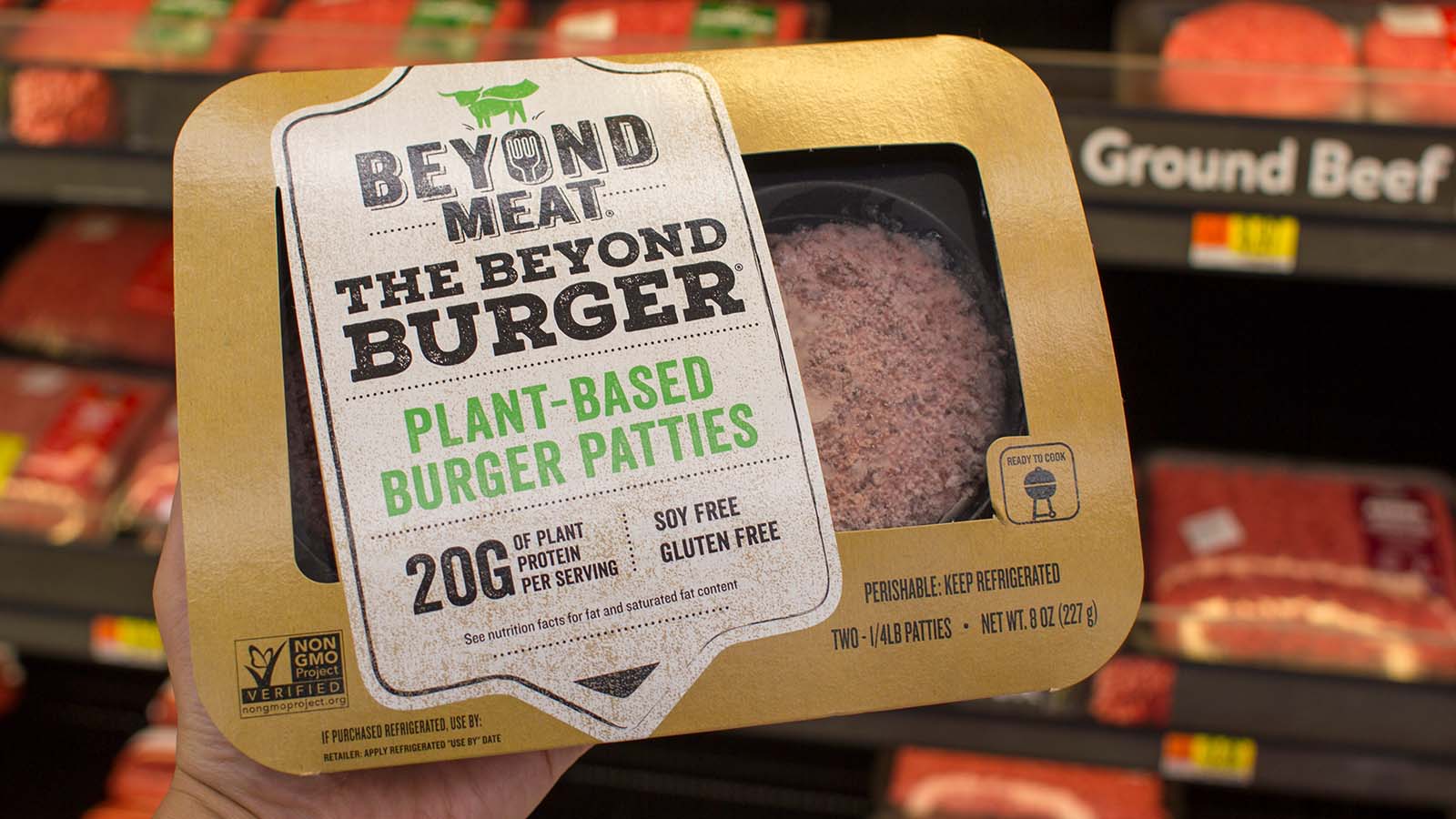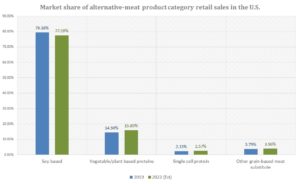Alternative-meat producer Beyond Meat (NASDAQ:BYND) has never been a consistent market entity in its short life. Therefore, it wasn’t particularly surprising when BYND stock jumped substantially higher in the early weeks of 2020. With the underlying company’s fake meat products finding significant momentum at fast-food eateries, the signs were initially positive.
That is until the novel coronavirus devolved into a pandemic. Worse yet, both the U.S. and developed nations across the world imposed various stay-at-home orders. As such, the news couldn’t be worse for BYND stock. Whatever progress they had made – and again, it was worryingly significant for Beyond Meat critics – came crashing down in the cruelest of ways.
Still, out of this disaster came a potential, albeit cynical catalyst. With several food workers coming down with Covid-19, many meat processing plants have been forced to shut down. From names like Tyson Foods (NYSE:TSN) and JBS (OTCMKTS:JBSAY), affected companies have taken appropriate action. Of course, this is a net negative for the traditional meat processors but may open the door for BYND stock.
It’s not just that Beyond Meat’s competitors must shutter part of their processing capacities. Rather, Beyond Meat products are typically priced much higher than “standard” alternative-meat products (i.e. black bean burgers) and real meat. But now, the closed facilities suggest low supply is on the horizon. Of course, that translates to higher prices, all other things being equal.
So, is now the time to advantage the discount in BYND stock? Here are three reasons why I still have my doubts.
BYND Stock Fails the Preference Test
As an alternative-meat producer, Beyond Meat and its competitors have always stared down the consumer preference challenge. Before management can count on mass sales conversions, they must convince customers that their products are just as good as the real thing.
Obviously, traditional meat companies don’t have that problem: they already deliver the real deal.
Admittedly, many folks, such as InvestorPlace contributor Will Ashworth, like the taste of Beyond’s fake-meat products. Subsequently, Mr. Ashworth also likes McDonald’s (NYSE:MCD), so I wouldn’t necessarily use his opinion as reliable culinary advice.
All joking aside – we’re friends, really! – his opinion may be in the minority. If you’re comparing broader consumer analyses, he’s certainly a culinary contrarian.
According to Agriculture and Agri-Food Canada, most people in the U.S. prefer soy-based alternative meats as opposed to vegetable or plant-based iterations. In fact, the preference is overwhelming. In 2019, 79.4% preferred soy-based fake meat versus 14.5% for vegetable/plant-based alternatives.
Yes, experts predict that in a few years’ time, some consumers will shift toward the vegetable or plant-based variety. But the sentiment is nowhere near enough to overturn the preference for soy.
Why is this important? Because according to Cnet.com, “Beyond Meat uses pea protein instead of soy protein, and there’s no soy leghemoglobin, which is Impossible’s [BYND’s rival] key ingredient that makes the burger ‘bleed.’”
Food Industry Disrupts May Cut Both Ways
Another reason you should avoid panic buying BYND stock is that the present crisis is unpredictable. Of course, this is an unprecedented situation. Therefore, we just don’t know how things will turn out for the food supply chain.
I think it’s reasonable to assume that many possibilities exist. In my opinion, we could see a circumstance where prices don’t change at all. For instance, up until recently, Saudi Arabia and Russia were locked in a bitter oil price war. With an OPEC+ deal, the major oil producing nations have agreed to a historic production cut.
But will that move the needle in energy? I doubt it. While supply is an important factor, unless you do something about demand, these production cuts are meaningless. And it could be that due to unusually pressured finances, family budgets are already stretched to the limit. Whether prices move up or down, many Americans will simply not buy.
Further, the Wall Street Journal has already demonstrated this point. A recent article notes that demand for bacon has plummeted. So, meat processors must find some alternative use for the pork bellies from which bacon originates or risk eating a massive loss.
Let’s also say that the coronavirus fades and supply chains everywhere return to normal. In that scenario, real meat products will be priced much lower than Beyond Meat’s counterparts. Eventually, this will cut into the market value of BYND stock.
Also Not Helping BYND Stock? Restaurants Under Fire
Finally, I would avoid BYND stock on the basis of supply chain disruptions because meat-plant closures represent only part of the story. Instead, one of the pivotal drivers in this mess is the shuttering of restaurants. Whether you’re talking fancy fare or Denny’s (NASDAQ:DENN), demand for eating out has absolutely plummeted.
According to data complied by the WSJ, food away from home represented 54.4% of U.S. food expenditures. If we encounter an economic recession, then we should reasonably expect this trend to reverse to majority food at home.
Unfortunately, that cuts into Beyond Meat’s expansionary strategy right at the time when they didn’t need it. Arguably, when consumers are shopping for groceries, they are much more price conscious. But at a restaurant, they are more likely to consider trying something new, even if slightly more expensive.
However, the shelter-in-place orders have devastated the restaurant industry. And with that destruction went a viable conversion opportunity for Beyond Meat, an opportunity they really can’t afford to lose.
A former senior business analyst for Sony Electronics, Josh Enomoto has helped broker major contracts with Fortune Global 500 companies. Over the past several years, he has delivered unique, critical insights for the investment markets, as well as various other industries including legal, construction management, and healthcare. As of this writing, he did not hold a position in any of the aforementioned securities.


